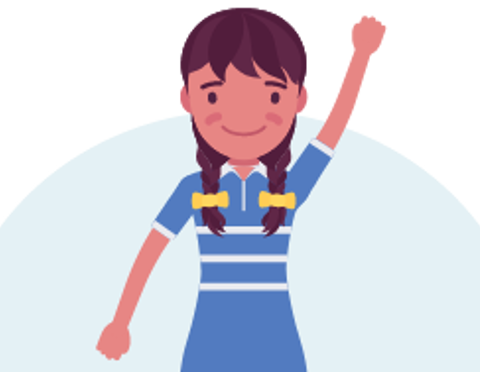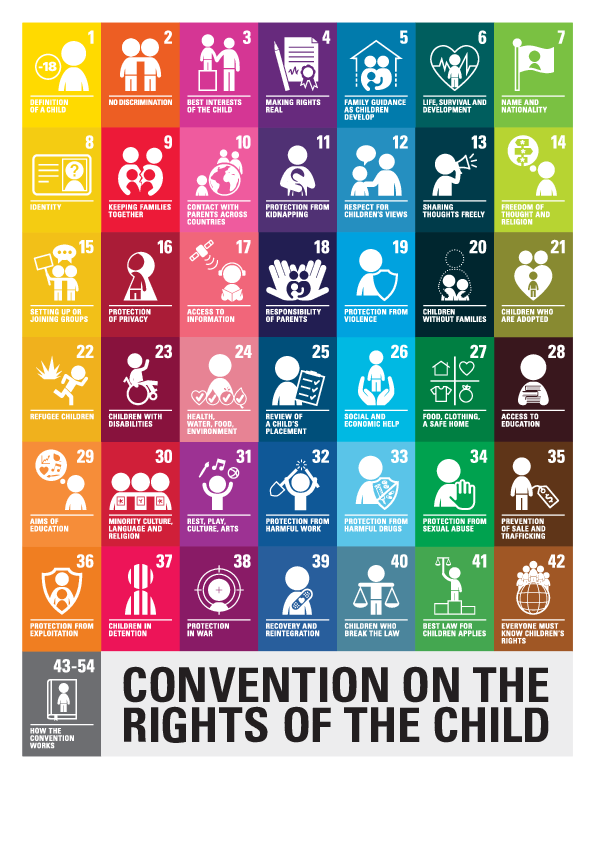What else should I know?
The rights of the family and child during the Safeguarding process
In 1989, the United Nations created a list of all the rights that children have, called the Convention on the Rights of the Child or the UNCRC. By signing the UNCRC, Scotland and the UK agreed that the rights of children should be protected and promoted in all areas of their lives.

Do you have a Safeguarder now?
If you are here because you have a Safeguarder now, then you may have a lot of questions and worries.
The UNCRC

- Universal, which means they are for everyone under 18 around the world
- Inalienable, which means they can’t be taken away from you
- Indivisible, which means they can’t be separated from each other – they’re all important!
- Interdependent, which means they depend on each other.
To learn more about all of the different rights in the UNCRC, visit the Children and Young People’s Commissioner Scotland’s website.
Common questions
According to the UNCRC, Article 12 states that children and young people have the right to share their views on matters that affect them and to have those views taken seriously.
Safeguarders are particularly interested in hearing children and young people’s thoughts and feelings about what is happening in their lives. This will help them think about what would be best for that child or young person going forward.
However, when a Safeguarder writes their report and makes recommendations to the Children’s Hearing Panel or the Sheriff, they will be taking into account all the information they have learned throughout their involvement. This may not always be the same as what the child, young person, parent or carer has asked to happen.
Safeguarders aim to make sure any decisions made are in the best interests of the child or young person.
Safeguarders belong to the national Safeguarders Panel. This is made up of all the Safeguarders across Scotland. Each Safeguarder has agreed to follow national standards to make sure they do the best job they can. You can read the national standards here.
Any child or young person, who a Children’s Hearing or Sheriff decide should have a Safeguarder, will have a Safeguarder appointed to them from this national panel.
Children First is contracted by the Scottish Government to manage and operate the national Safeguarders Panel. The role of the Safeguarders Panel Team, who are based at Children First, includes recruitment, training, managing appointments, feedback and concerns, and monitoring the performance of Safeguarders across Scotland.
The Children’s Hearings System is the care and justice system for Scotland’s children and young people. A fundamental principle is that children who commit offences, and children who need care and protection, are dealt with in the same system, as these are often the same children.
The hearings system aims to ensure that the best interests of the child are met and that the child receives the most appropriate intervention and support.
The child along with parents or carers are central participants, although discussion may also include the local authority social worker, a teacher and other key professionals as necessary. Hearings normally take place in the child’s home area.
A Children’s Hearing is a lay tribunal made up of three Children’s Panel members who are unpaid, trained volunteers from local communities. The hearing listens to the child’s circumstances and then decides if any measures are required. The child may require a particular type of intervention, such as being placed with foster carers, in a residential unit or in secure accommodation. The hearing may decide that the child should remain at home with support from other agencies, such as the local authority social work department.
More information about the Children’s Hearings System can be accessed on the Scottish Government’s website and SCRA’s website.
